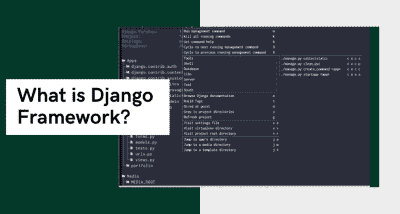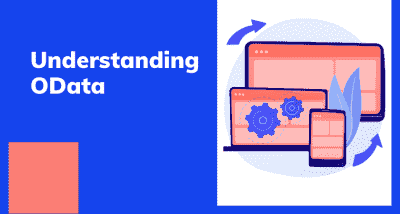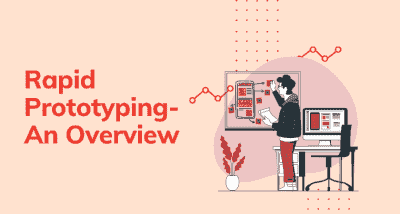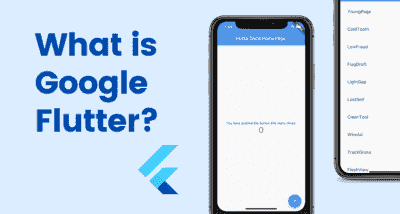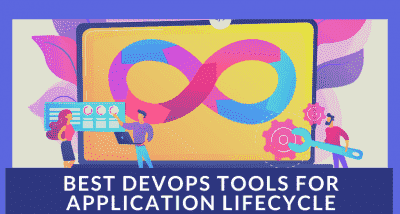IS GOOGLE GOING TO REPLACE ANDROID AND CHROME WITH FUCHSIA?
- Amruta Bhaskar
- Jan 28, 2020
- 0 commentaires
- 2980 Vues

If you are a tech-savvy person then you would have probably heard about Google Fuchsia OS and all the mystery surrounding it. Many people have lots of questions about the latest features of the new Google Fuchsia OS. If you are one of those people then this blog will satisfy your curiosity!
In this blog, we will be discussing how Google Fuchsia OS started, benefits of Fuchsia OS and what the future holds for this Google operating system.
A brief history of Google Fuchsia
The Fuchsia operating system came up in the year 2016 and caused ripples in the mobile app industry. Fuchsia appeared on GitHub in the month of August without any official announcement from Google. Just like Android, it is open-source and free software.
Many experts are already of the opinion that Google Fuchsia OS is the next big thing and may replace Android. In spite of all the suspense surrounding it, there is no news about Google’s new OS from the officials. As there is already so much speculation around this OS, it will be interesting to know how it is different from Android and Chrome. Also, the question persists that, is the Android’s future really at stake?
As per the initial analysis by technology experts, it seems that the idea behind Google’s new operating system was to make it a universal one. A universal operating system means it can run on all kinds of devices such as phones, smart-home devices, tablets, connected appliances and much more.
Microsoft and Apple have already tried their hands at this concept of a universal operating system. However, Windows 10 and real OS X failed to meet the expectations. After the two failed attempts, let’s see how Google is able to fare in this universal OS development challenge.
How is Google Fuchsia OS different from android and chrome OS?
Right now it can be said that Linux is the only platform that is somewhat related to the term universal operating system. It is because Linux is exclusively used in chrome OS, routers, modems, android and smart devices.
However, this new OS is not based on Linux. The Fuchsia OS is based on Google’s own kernel called Zircon or Magenta. Zircon is generally used for embedded systems. Don’t let its origin fool you! Although the origin is based on embedded systems, scalability lies at the core of Fuchsia. It has the ability to run on all kinds of devices like smartphones, desktops, and tablets.
What is the purpose of Google Fuchsia OS?
As mentioned earlier, currently there is no clear picture of what the future will bring for this OS. But there was a rumour that Fuchsia may take over Android and chrome OS in the coming years, but, this rumour was immediately clarified by Google.
Other rumours in the industry state that Fuchsia will be initially installed on smart home devices before moving on to laptops and smartphones. Also, it must be kept in mind that Google might shut down the entire project if they feel it’s not turning out to be as expected.
At Google’s I/O developers conference in May, Hiroshi Lockheimer, head of Android and chrome told The Verge about Fuchsia that, “We’re looking at what a new take on an operating system could be like.
Fuchsia is about just pushing the state of the art in terms of operating systems and things that we learn from Fuchsia can be incorporated into other products”.
As per this statement, it can be rightly said that this OS is only a tester for similar concepts.
You might be wondering what will Google Fuchsia OS achieve that couldn’t be done by updating android or chrome OS? Well, it could be something with the kernel that we discussed earlier. Zircon will enable the OS to scale down to all kinds of embedded devices. Apart from the embedded devices, it is proved to scale up to larger devices such as laptops and computers.
Android is already entering the household appliances category, but it may turn out that Fuchsia may turn out to be a better choice. It can be said that the Fuchsia OS is heading towards IoT. IoT can be defined as a collection of smart devices that improve home automation. Fuchsia may become a common operating system for all of these devices.
What is the effect of Google Fuchsia OS on developers?
Developers don’t have access to the Fuchsia OS. Although, when it is available, a Fuchsia OS developer will be able to build applications using any programming language. The key here is Flutter!
We all know Flutter is a tool to develop cross-platform applications. Flutter framework will support application development for multiple platforms like Fuchsia, android and iOS. Therefore, it is a positive aspect for the developers’ community as they’ll be able to build a single application to run on various platforms and that too with minimum investment.
The additional benefit of Flutter is based on Material Design. Material Design is Google’s latest visual design standard that is compatible with Android, web properties and chrome OS. Even though Flutter supports gaming and media applications as well as advanced UI elements, the ultimate performance will also depend on the hardware setup.
Features of Google Fuchsia OS:
· User Interface
We did mention that Material Design that can be used with Google’s new operating system. Material Design has its own special renderer and Escher especially crafted for shadows. All the components in an application are neatly layered to give depth to them. Google Fuchsia OS basically has two layouts. First is a mobile-oriented design called Armadillo and the second one is a traditional desktop layout called Capybara.
· Smart assistants friendly
According to the current situation, it seems like Fuchsia OS will integrate in a better way with Google Assistant. Activities like on-screen activity, camera use, apps drawer and everything else will be accessible to Google Assistant. In the case of Android, when it holds a home screen, it analyzes the information available on the screen. On the other hand, Fuchsia is believed to dive deeper and get more information in comparison to Android.
· An OS for multiple devices
We are surrounded by smart devices most of the time. The increasing number of smart devices includes phones, desktops, tablets, wearable devices, etc. To cater to all these devices, Google is trying to craft the new OS in a way that it works on any device.
Currently, developers are facing a problem of maintaining progress across multiple devices. Fuchsia will resolve this too! All that the user has to do is log in to his Google Account and the information gets saved in all the connected devices.
Again a question might pop up in your head. How does Google Fuchsia OS achieve that? It is achieved with the assistance of a Ledger. Ledger is a distributed storage system that will store all the information in the cloud.
· Cutting edge architecture
We have already discussed the difference between android and chrome OS and Fuchsia OS. Android and Chrome OS are Linux-based. However, Android faced an issue integrating with the latest Linux kernel. So, Treble came into the picture to solve this problem. Some OEMs are still not allowing Treble in their devices which means users will be vulnerable to new exploits.
If we compare Google Fuchsia here with the other two then it has got its own customized kernel, Zircon. It can be updated as per your wish. To do so, any access of the applications to direct kernel is limited. All these things increase the security
No official date of the release has been mentioned by Google yet. The development team is working hard to make sure that it turns out to be a breakthrough in the world of technology. However, it is safe to say that the world is waiting to see what Google will unfold this time with the release of Fuchsia OS.
Author: Bharani G R




